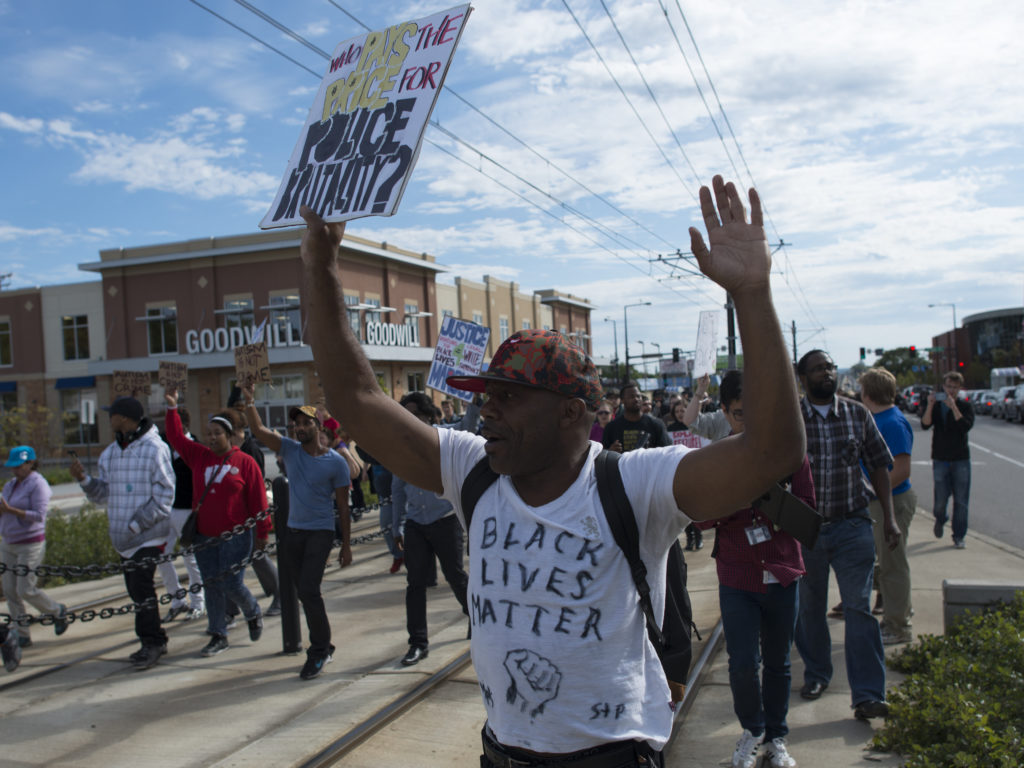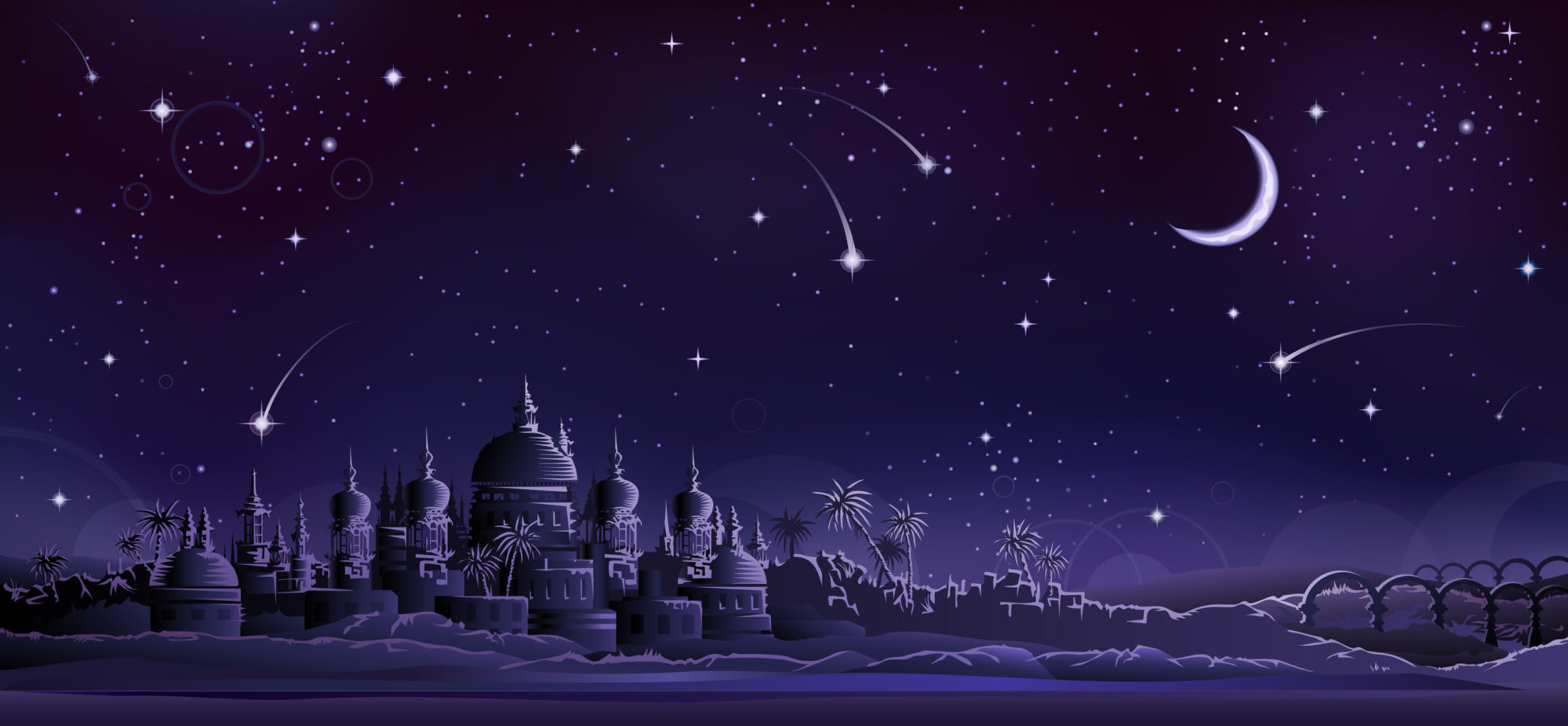
Black Lives Matter protest against police brutality in St. Paul, Minnesota
As a newish author, I pretty regularly devour any and all advice on how to build a successful platform. Some of the conventional wisdom I’ve seen warns against making public comments on controversial issues in order to avoid alienating one’s readers or potential readers. Author and marketing consultant Rachel Thompson wrote a well-reasoned POV on the subject a couple of years back.
That hasn’t stopped some authors from chiming in softly or loudly on various issues, sometimes with collective might, as with the recent petition led by Stephen King against presidential candidate Donald Trump. Furthermore, there’s a compelling counter argument against the “stay out of politics and religion” code of conduct, which was well-articulated by John Green in his 2012 article for The Daily Fig: “Writers Need to Get Political.”
Says Green: “Just as we have a responsibility to tell the truest stories we can tell, as writers we have a responsibility to participate in our governance. I think you will find, as I have, that writing is not the opposite of politics after all: They are both ways of trying to apprehend the world as it is, and to imagine the world that might be.”
I don’t use my little, stepladder platform to talk about what’s going on in the world too often, though talking about social and political issues comes easily to me. I spent a good part of my life on the front lines of LGBT youth advocacy. As a published author, I’ve been conscious of the need to build my “brand” as a fiction writer foremost, rather than sharing my political values and beliefs since that’s not the product I have to sell.
I do participate in campaigns like #YesGayYA, #WeNeedDiverseBooks, and the International Day Against Homophobia and Transphobia because those causes are important to me. It’s who I am. I feel that sharing that part of me helps to engage and connect with readers. It also nourishes my personal need for connection and community. After the recent tragedy in Orlando, I felt it was not only natural for me to acknowledge the outrageous assault on LGBT men and women but also necessary as a gay author.
Last week, two black men were shot and killed by police officers during minor investigations. It was two more acts in a long series of horrendous injustices that are both symptoms of and abuses of power by a law enforcement system polluted by racial prejudice. Just as tragic, five police officers were killed and nine more were injured in a random act of retaliation by a black man with horribly misguided motives. Across the country, peaceful protests by the black community and its allies have fomented into violence, though it is well worth noting that the majority of the rallies to decry black murders by police have been peaceful.
Violence against black men is no lesser or greater of an atrocity than violence against LGBTs (and surely, those issues are often intertwined). I realized I have a responsibility to speak out about the events of last week just as I shared my heartbreak and anger following Orlando.
In both cases, communities are being further traumatized by rhetoric that pathologizes the victims. We are told by politicians and religious leaders that racism (and homophobia) does not exist, what happened was a “technical error,” and “trouble-making” groups like #BlackLivesMatter are exploiting these situations to create a racial divide. Recent comments by former New York City mayor Rudy Guiliani are one example.
I believe, I hope that most Americans can see that there are critical issues here we all must face. White people have a responsibility to listen and try to understand the experience of our black friends, family members and neighbors. We have a responsibility to acknowledge that race matters in society. We have an important role to play in achieving racial fairness.
A big part of that is recognizing our disparate experiences with law enforcement, and in interaction with other institutions in society, due to white privilege. In the classroom, I often share my personal “aha” experience with white privilege.
In my early twenties, I was in a relationship with a black man who surprised me one day by stopping me before we got into my car to make sure I was carrying my driver’s license. I was (still am) an absent-minded guy with a bit of an anti-authority streak, and I frequently hopped into the car with no thought of carrying my driver’s license. Having driven since I was sixteen, it had never occurred to me that I might be pulled over by the police. My boyfriend, who was about the same age as me, asked me: “Do you know what happens when a black man without ID is pulled over by the police?” A light-bulb went off in my head. I was shocked and humbled.
This is white privilege. I had never had to worry about police harassment based on my skin color. The few times I was pulled over for traffic violations, I had never worried about my behavior leading to any repercussions (and I was an ornery little bastard on those occasions, often presented with tickets, but never asked to step out of the car or interrogated about the purpose of my travel). Like many white men, I suspect, I self-righteously fought my fines through the legal system and won on two occasions even when I had been in the wrong. I faced police officers and traffic judges of the same skin color as me and certainly never wondered if my skin color would work against me.
As a gay man, I understand the fear of violence, that simply stepping out into the world places me at risk of harassment, discrimination, and even death because there are people who despise me for an aspect of my identity; and further, if that does occur I cannot count on being treated fairly by authorities who might share that bias. Social workers call that phenomenon adaptive paranoia.
As a white man, I am still learning about the contexts of racial violence and harassment. I don’t walk in those shoes. What I can do is listen, support, call out incidents of injustice, and help create a better world, as Green suggests.
In some ways, I feel there is an even greater gap in social action against racial injustice by non-black people than there is by non-gay people on issues of LGBT injustice. That is not to say that either issue is less or more deserving of action, and perhaps the sheer magnitude of inhumanity with Orlando engendered a bigger reaction across America by non-gay politicians, celebrities, artists, and musicians.
We need that same groundswell of outrage by white people on the issue of police brutality against blacks. #BlackLivesMatter.

Andy, well written my friend, I’m posting to my page. I stand with you!!